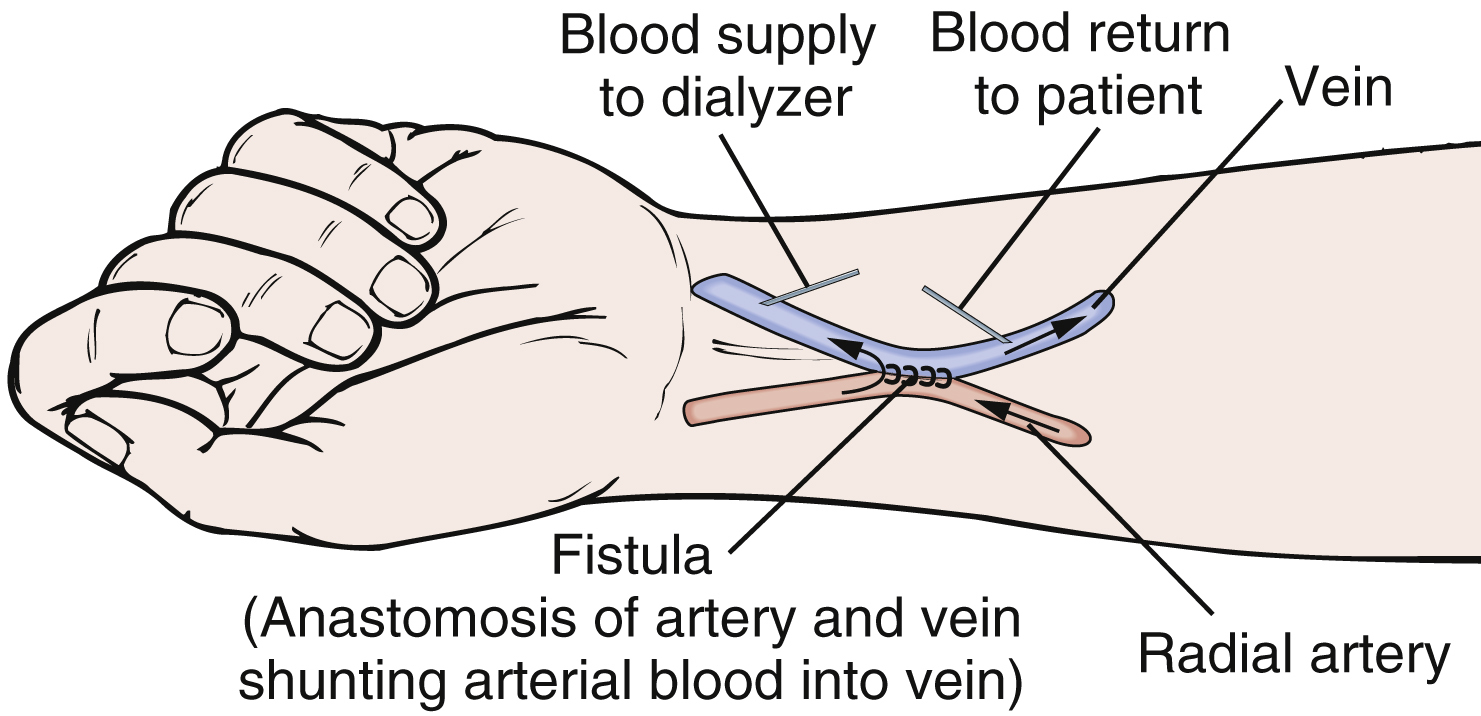arteriovenous fistula, 1. an abnormal communication between an artery and vein. It may occur congenitally or result from trauma, infection, arterial aneurysm, or a malignancy. A continuous murmur and palpable thrill may be detected over the fistula and may be obliterated by compressing the feeding artery; this maneuver may slow the heartbeat (Branham’s sign). Chronic arteriovenous fistulas may cause varicosities, cutaneous ulcers, and cardiac enlargement resulting from high-output heart failure. A congenital fistula may result in a cavernous hemangioma. If an arteriovenous fistula is limited in size and is accessible, it can be treated by surgical excision. 2. an anastomosis between an artery and vein created surgically to provide vascular access for hemodialysis.

